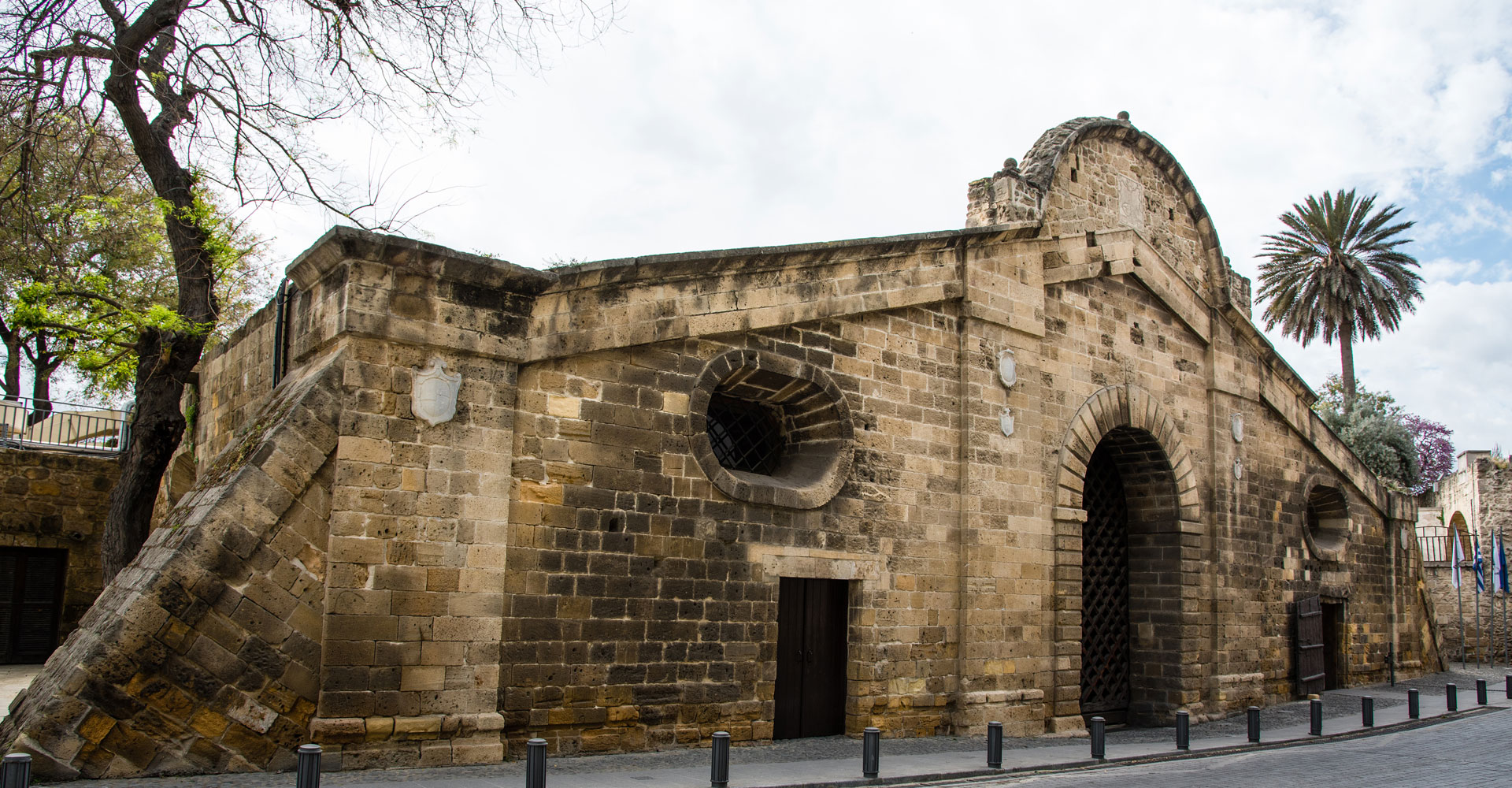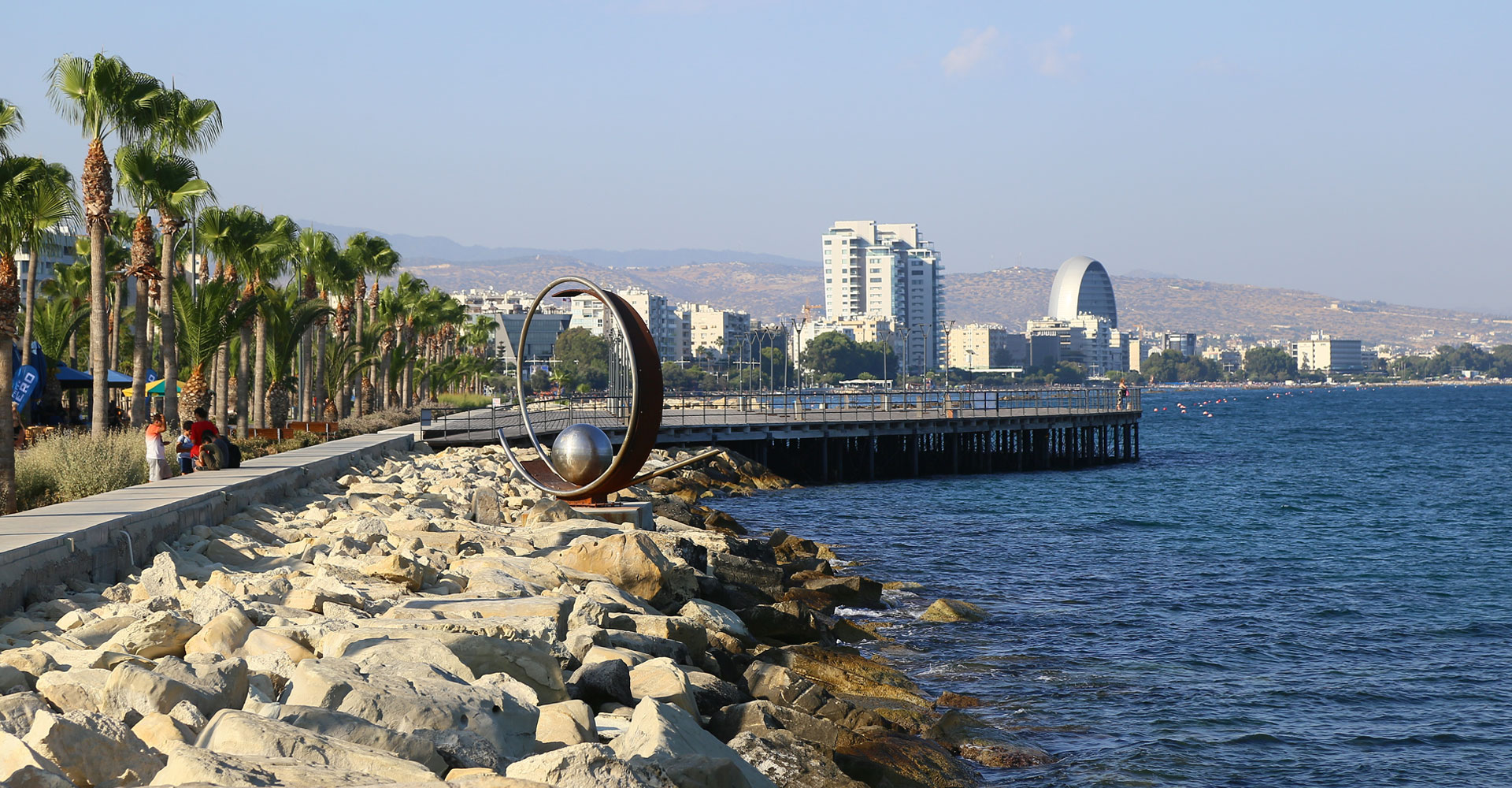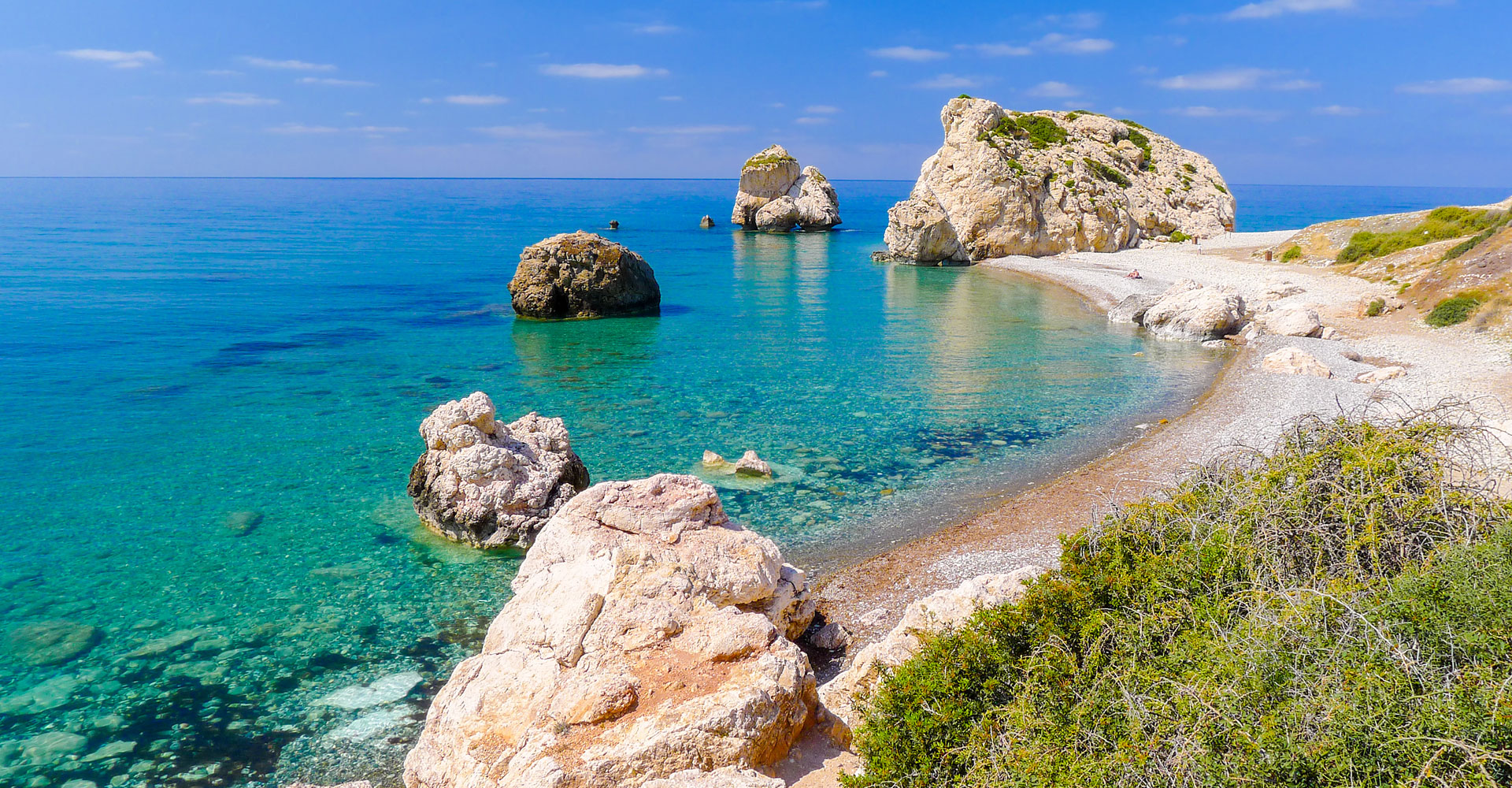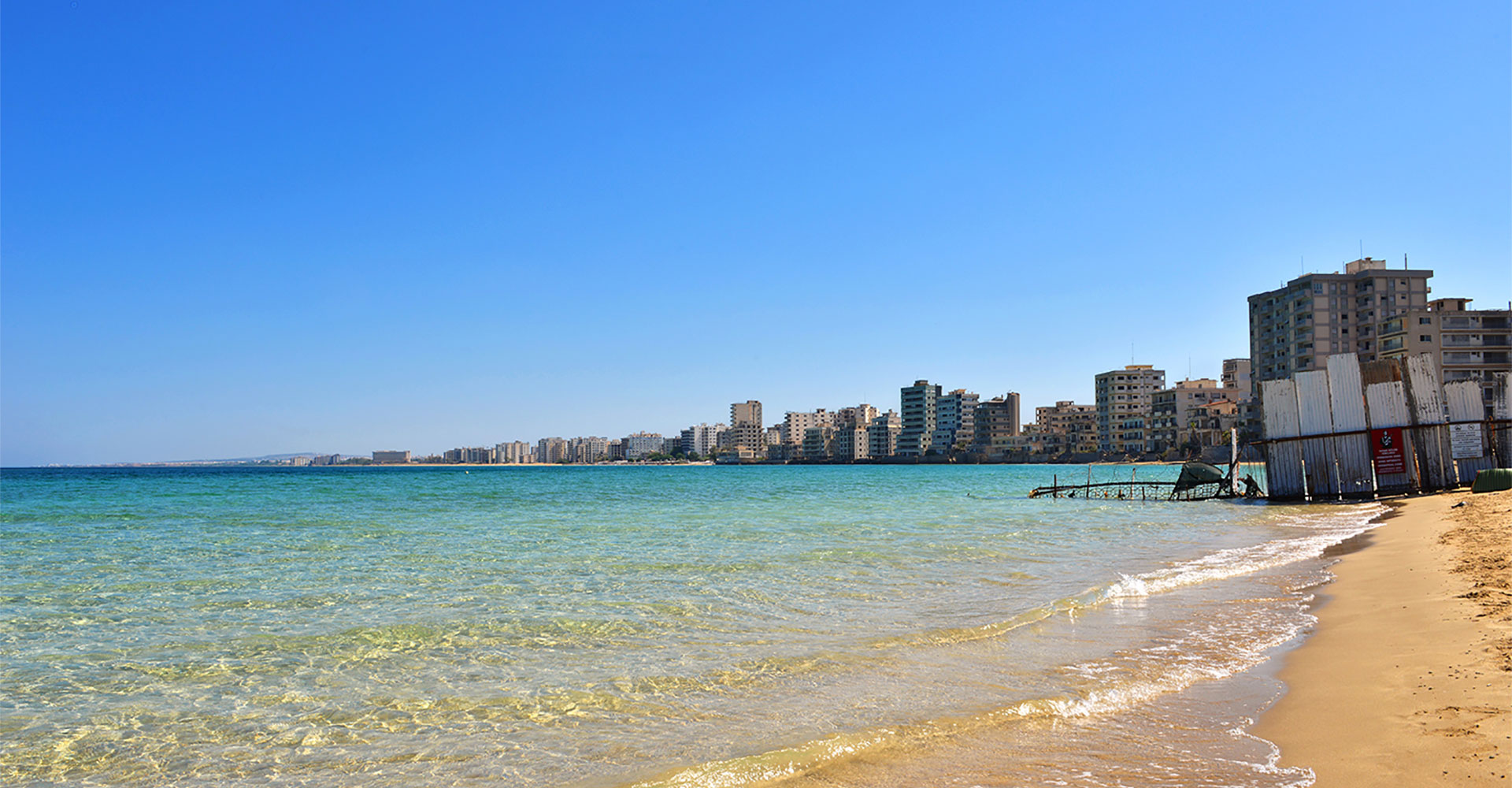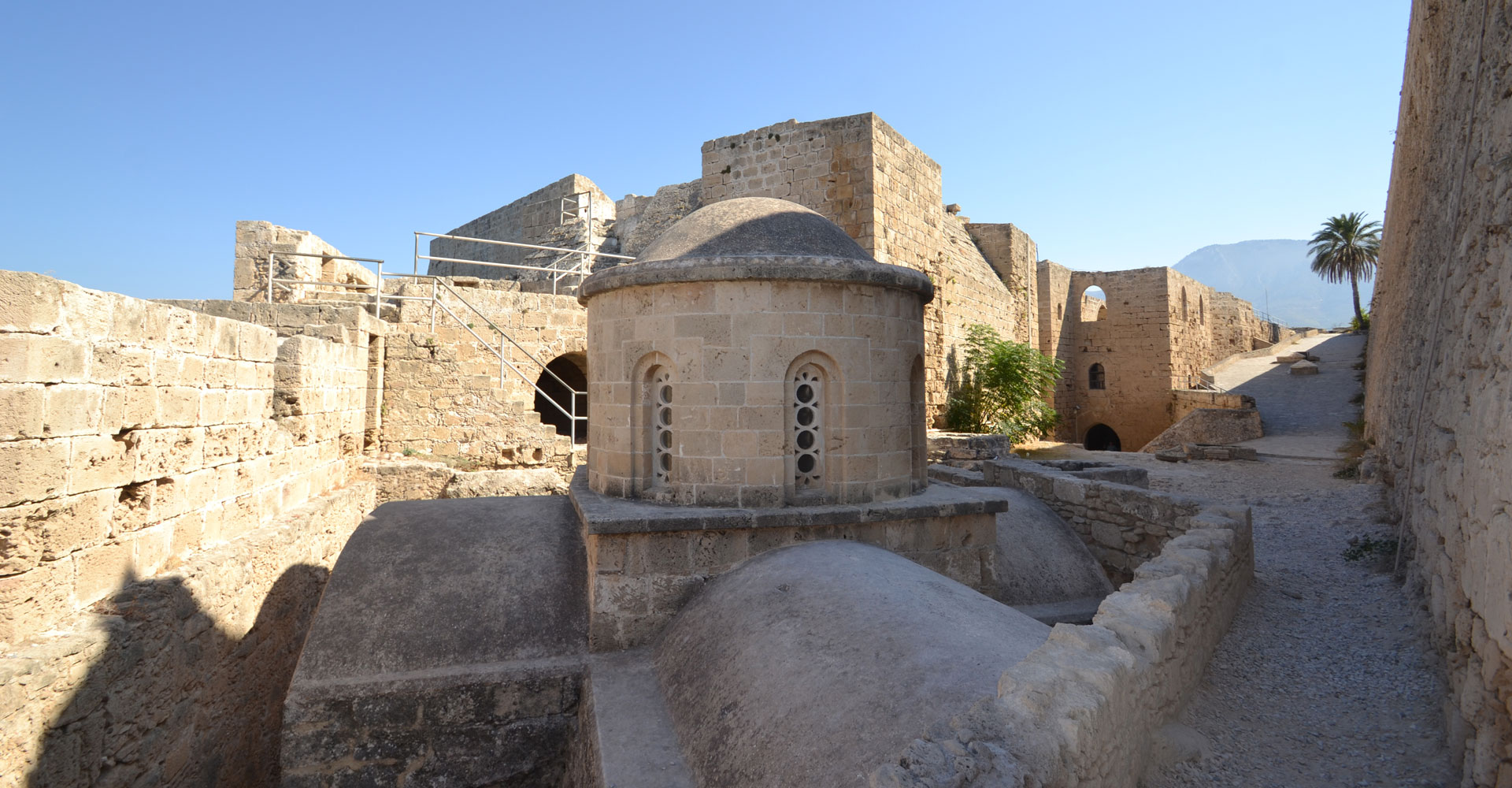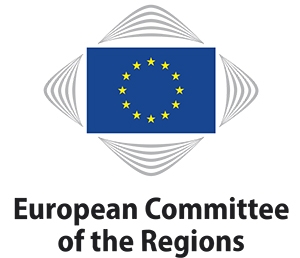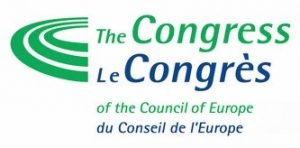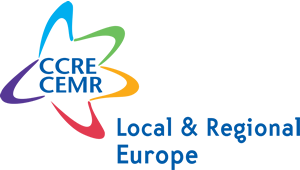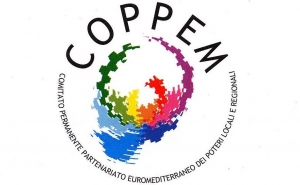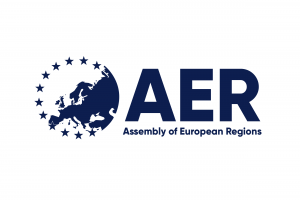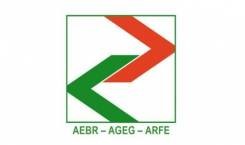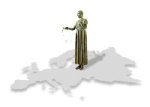European Committee of the Regions (ECoR)
ORGANIZATION AND OBJECTIVES
The European Committee of the Regions (ΕCoR) was established in 1992 by the Maastricht Treaty and held its inaugural meeting on 9-10 March 1994 in Brussels. As an institution of the EU, it is a political assembly representing local and regional authorities of the Member States, ensuring their participation in the policy development process of EU legislation, and is an integral part of European mechanism of governance.
The role of the Committee of the Regions in EU policy making and legislation
The role and functioning of the ECOR are set out in detail in Articles 300 and 305-307 of the Treaty on the Functioning of the European Union (TFEU) and the Rules of Procedure of the ECoR.
Through the ECoR, EU local and regional authorities have a say in the development of EU legislatiion that affects regions and municipalities. Until 2009, the role of the ECoR was purely consultative. However, with the Treaty of Lisbon, the important role of the ECoR has been recognized and strengthened. Today, the EU institutions (Council, Commission, Parliament) have an obligation to consult the ECoR for each policy / legislative line they prepare for local / regional government.
One of the key elements that strengthened the role and position of the EUT with the Treaty of Lisbon is that, if the ECoR considers that its view has not taken into consideration in the decision-making process of the other institutions, it can resort to the European Court of Justice and halt the proceedings.
In turn, the ECoR, through its opinions, gives its views to the other institutions, either on current ongoing strategic and policy planning processes or through own-initiative opinions, ie on issues that it considers that should be under consideration. On average, the ECoR adopts 50-60 Opinions per year and its contribution is recorded in its annual report.
The involvement of the ECoR in EU policy making and legislation
The Commission’s Annual Work Program sets out the Commission’s legislative proposals and the legislative workload of the EU institutions. The Commission has an obligation to ask for the views of the Committee on Local / Regional Governance issues such as:
- transport
- employment
- social policy
- education, vocational training and youth
- culture
- public health
- trans-European transport, telecommunication and energy networks
- economic, social and territorial cohesion
- environment and
- energy
The European Parliament, the Council and the European Commission may request the ECoR to provide its views on the areas and issues they consider necessary. The drafts and final texts of the Opinions prepared by the ECoR are accessible through a database.
Subsidiarity
The principles of subsidiarity and proportionality should be respected throughout the EU legislative process. Since the Treaty of Lisbon entered into force, Member States and the Committee of the Regions have the right to take legal action through the European Court of Justice if they believe that the principle of subsidiarity is not respected.
In 2007, the SCP launched a Subsidiarity Monitoring Network comprising of regional parliaments and governments with legislative powers, associations of local and regional authorities and local authorities, to monitor and verify that the subsidiarity principle is being properly applied. In 2014, the European Committee of the Regions adopted the ‘Charter for Multilevel Governance in Europe’ to ensure that the principles of subsidiarity, proportionality and partnership are widely known and respected in the EU policy making process.
How does the SCP affect EU policy?
Each year, an output report is produced which summarizes the impact of the EU’s advice on EU legislation and policies. As regards the impact of the ECoR opinions, it is possible to distinguish between:
- Whether specific recommendations of the ECoR have been incorporated into the final legislation,
- Whether the policy recommendations of the ECoR have been taken into account in the proposed legislation or during the legislative process,
- Whether there is reference to the contribution of the ECoR during the ongoing political discussions,
- Whether reference is made to the positions/opinions of the ECoR in other EU documents, eg. resolutions of the European Parliament
STRUCTURE OF THE ORGANIZATION
The political work of the Committee of the Regions is organized around six plenary sessions a year, bringing together all members (or their deputies), allowing them to discuss and vote on opinions and possible resolutions. Every two years and six months, the plenary elects the President of the Committee and the First Vice-President. The President directs the work of the ECoR and is its main representative.
In the absence of the President, the Committee is represented by the First Vice-President, or another Vice-President.
The EcoR’s activities, are defined by its executive body, the Bureau, which, together with the President, sets out the annual political priorities to be adopted by the plenary.
The members of the ECoR are divided into political groups, reflecting the main European political families. These political groups meet before each session. The chairmen of the political groups, together with the President and the first Vice-President, meet in a Conference of Presidents before each plenary session to discuss key orientations and reach political consensus.
Members also belong to one of the 28 national delegations, which meet before each Plenary Session of the ECoR to discuss their positions on the political issues to be addressed during the session. They also take part and are members of 1-2 of the six thematic working commissions.
The competences of each thematic working commission reflect the main policy areas for which the EU institutions await views from the ECoR. Each commission meets five times a year to discuss and prepare its position and views (by drafting and submitting opinions to the plenary) under the guidance of a rapporteur. The ECOR Plenary may also adopt resolutions in response to topical political issues.
Administration of the ECoR
The administration of the SCP is supervised by the Secretary-General, who is appointed by the Bureau for the Bureau’s five-year term. He/She is responsible for implementing the decisions of the Bureau and the President, as well as managing the Secretariat, in close cooperation with the Presidents and Secretariats of the political groups.
PRESIDENT: Karl-Heinz LAMBERTZ (BELGIUM)
FIRST VICE PRESIDENT: Markku MARKKULA (Finland)
GENERAL SECRETARY: Jiří Buriánek
COMMISSIONS (SUBCOMMITTEES)
The EcoR has six thematic working commissions which prepare Opinions on proposals for new policy, legislation / regulations proposed by the European Commission or other subjects.
The working commissions meet four times a year in Brussels and also organize an external meeting each year, usually combined with thematic / training seminars.
The structure of the thematic working committees reflects the political and national composition of the Committee of the Regions and their competences reflect the main priorities of the CoR. Thematic committees submit draft opinions and resolutions to the Plenary for debate and approval, and are supported by the CoR’s Secretariat. Each thematic committee elects a chairman and two vice-presidents at the beginning of each term. There is also a political coordinator for each of the political groups. The coordinators assist the chair of each thematic committee in organizing its work.
Each thematic committee has its own website, which provides information on the composition, current work and general news related to its members and the general public.
Below is a list of thematic Working Committees and the subjects for which they are responsible, as well as links to their websites where you can find more information:
- CIVEX: Commission on Citizenship, Governance, Institutional and External Affairs
http://cor.europa.eu/en/activities/commissions/Pages/cor-commissions.aspx?comm=CIVEX - COTER: Commission on Territorial Cohesion Policy and EU Budget
http://cor.europa.eu/el/activities/commissions/Pages/cor-commissions.aspx?comm=COTER - ECON: Commission on Economic Policy
http://cor.europa.eu/el/activities/commissions/Pages/cor-commissions.aspx?comm=ECON - SEDEC: Commission on Social Policy, Education, Employment, Research and Culture
http://cor.europa.eu/el/activities/commissions/Pages/cor-commissions.aspx?comm=SEDEC - ENVE: Commission on the Environment, Climate Change and Energy
http://cor.europa.eu/el/activities/commissions/Pages/cor-commissions.aspx?comm=ENVE - NAT: Commission on Natural Resources
http://cor.europa.eu/el/activities/commissions/Pages/cor-commissions.aspx?comm=NAT
ACTIVITIES
Its main activities include:
- Dialogue with Citizens
- Cohesion Alliance
- The Future of Europe:
- The Covenant of Mayors
CYPRUS NATIONAL DELEGATION TO THE COMMITTEE OF THE REGIONS
The Committee is composed of 350 members and 350 alternate members who must either hold an electoral mandate to a regional / local authority or be politically accountable to an elected local government assembly.
The Cypriot National Delegation to the EcoR consists of six permanent members:
- Eleni Loukaidou, Municipal Councilor of Nicosia and Head of the Cyprus Delegation
- Stavros Stavrinidis, Mayor of the Municipality of Strovolos
- Kyriacos Xydias, Mayor of the Municipality of Amathounta
- Photoula Hadjipapa, Mayor of the Municipality of Lakatameia
- Christakis Meleties, Chairman of the Community Council of Kokkinotrimithia
- Lefteris Perikli, Chairman of the Community Council of Apesia
and six alternate members:
- Stavros Hadjiyiannis, Mayor of the Municipality of Notias Lefkosias – Idaliou
- Nikos Palios, Mayor of the Municipality of Hierocepia
- Andreas Theodorou, Mayor of the Municipality of Polemidia
- Isabella Tymviou, Municipal Councilor of Nicosia
- Christodoulos Papachristou, Chairman of the Community Council of Psematismenos
- Maria Christou, Chairman of the Community Council of Fasoulas Pafou
The allocation of members of the Cypriot delegation to the thematic committees is as follows:
CIVEX: E. Loukaidou and C. Meleties
COTER: E. Loukaidou and K. Xydias
ECON: K. Xydias and L. Perikli
SEDEC: P. Hadjipapa and S. Stavrinidis
ENVE: P. Hadjipapa and S. Stavrinidis
NAT: C. Meleties and L. Perikli
CONGRESS OF LOCAL AND REGIONAL AUTHORITIES OF THE COUNCIL OF EUROPE (CLRAE)
THE ORGANISATION AND ITS MAIN GOALS
The Congress of Local and Regional Authorities of the Council of Europe was founded in 1994 as a consulting body replacing the until then existing Permanent Convocation of Local and Regional Authorities. It is constituted of 315 elected full members and 315 alternate members from local and regional authorities of the Council of Europe’s Member States with a two-year mandate. Cypriot Local Government is represented to the Congress by three full members and three alternate members.
The aim for the Congress’ creation is to provide support and help to Member States, through close progress monitoring on issues related to the establishment and function of an efficient local and regional governance.
STRUCTURE
The Congress operates through two Chambers – the Chamber of Regions that examines regional authorities issues and the Chamber of Local Authorities that studies Local Government matters.
Congress operations are achieved through the different Committees. The Monitoring Committee that is comprised of representatives from all national delegations, meets between the annual General Assemblies and ensures the continuation of the body’s work. There are four Committees based on which the operation and functions of the Congress are organised upon:
- Institutional Committee: Studies the progress of local and regional democracy in Europe and drafts related reports.
- Committee on Culture and Education: Studies Media, youth, sports and communication
- Committee on Sustainable Development: Studies environment, urban and spatial planning
- Committee on Social Cohesion: Studies public health, gender equality and employment
Congress Presidence:
Gudrun Mosler-Törnström, President
Andreas Kiefer, SecretaryGeneral
Chamber of Local Authorities Presidence:
Anders Knape, President
Jean-Philippe Bozouls, Secretary
ACTIVITIES
- A Platform where elected representatives can discuss, exchange experiences and express views on different matters.
- Advises the Ministers’ Committee and the Parliamentary Assembly of the Council of Europe on all matters regarding local and regional government.
- Works closely with national and international organisations representing local and regional governance.
- Organises hearings and conferences attracting people and actors from the wider public whose involvement is necessary for a functional democracy.
- Drafts reports on the functioning of local and regional democracy of Member States and candidate States and monitors the implementation of the European Charter for Local Government.
CYPRIOT PARTICIPATION
Twice a year, during the Congress’ meetings, the Chamber of Local Authorities meets to discuss current issues regarding the local dimension of Europe. Its Secretariat meets on a regular level to discuss and prepare draft resolutions and recommendations that are submitted for adoption during General Assemblies.
National Delegations to the Congress comprise representatives of Local and Regional Authorities of the 47 Member-States of the Council of Europe. The Members are either directly elected, or appointed to a Local or Regional Authority, or are politically dependent to a democratically elected authority.
Full members and alternate members are appointed for a mandate of two years on the basis of each national procedure. Each national delegation is obliged to follow the equal representation regulations:
- Balanced geographical attribution of each State delegation members
- Balanced local and regional authorities representation
- Balanced political forces’ representation as represented in the national Local Government
- Balanced gender representation. Since 2008, each delegation ought to include representatives of both genders, with at least 30% representation of the under-represented gender.
Each national delegation picks its Secretary. As the head of delegation, the Secretary acts as a special mediator with the Congress Secretariat. They hold a key-role on exchanging information matters, especially regarding the renewal of delegations every two years and after local elections.
Secretaries also assist Delegation members regarding their participation in meetings, committees, conferences, etc.
The Cypriot delegation for the 2024-2028 municipal mandate is composed by:
- Andreas Vyras, Larnaca Mayor – UCM President, FULL MEMBER
- Antri Michalia, Lakatameia Municipal Councillor, FULL MEMBER
- Andreas Ttaouksis,Larnaka Municipal Councillor, ALTERNATE MEMBER
RECOMMENDATIONS ON LOCAL DEMOCRACY IN CYPRUS
COUNCIL OF EUROPEAN MUNICIPALITIES AND REGIONS (CEMR)
THE ORGANISATION AND ITS MAIN TARGETS
The Council of European Muncipalities and Regions was founded in 1951 in Geneva. Today, it constitutes the largest organisation of Local and Regional Authorities in Europe. Its members are National Local Government Associations from over 35 countries. Together, they represent approximately 100,000 local and regional authorities. The Union of Cyprus Municipalities is a member since 1990.
The Council works to promote a unified Europe, based on local democracy. In order to achieve this goal, it tries to shape the future of Europe by enhancing Local Authorities, influencing related European legislation and policy, best practices exchange on local and regional level and cooperation with international partners.
STRUCTURE
The Council operates with the help of three organs: Policy Committee, Executive Bureau and Representatives’ Assembly. Policy Committee – the governing body of the Council – meets twice every year and is composed by delegations of National Local Government Associations that are members of CEMR. The Union of Cyprus Municipalities is represented by 3 members.
President
Stefano Bonaccini, CEMR President
President of the Emilia-Romagna Region, President of AICCRE (CEMR’s Italian section)
Italy
Co-Presidents
Gunn Marit Helgesen, CEMR Co-President
Councillor of Vestfold and Telemark County, President of the Norwegian Association of Local and Regional Governments (KS)
Norway
Christoph Schnaudigel, CEMR Co-President
President of the Karlsruhe Landkreis
Germany
Chair of the Financial Management Committee
Christine Oppitz-Plörer, Chair of the Financial Management Committee
Innsbruck City Councillor
Austria
Executive Presidents
Aleksandra Dulkiewicz, Executive President
Mayor of Gdansk
Poland
Anne Hidalgo, Executive President
Mayor of Paris
France
Anders Knape, Executive President
Lord Mayor of Karlstad City Council, President of the Swedish Association of Local Authorities and Regions (SALAR)
Sweden
Fernando Medina, Executive President
Mayor of Lisbon
Portugal
Jan Van Zanen, Executive President
Mayor of Utrecht and European Co-President of UCLG
Netherlands
Vice Presidents
Mariana Gâju, Vice President
Mayor of Cumpăna, First Vice-President of the Association of Romanian Communes (ACOR)
Romania
Victor Hadjiavraam, Vice President
Mayor of Morphou
Cyprus
Aldis Hafsteinsdóttir, Vice President
Councillor and Mayor of Hveragerðisbær, President of the Association of Local Authorities in Iceland (IS)
Iceland
Christiane Horsch, Vice President
Mayor of Schweich
Germany
Philippe Laurent, Vice President
Mayor of Sceaux
France
Carlos Martínez Mínguez, Vice President
Mayor of Soria
Spain
Fatma Șahin, Vice President
Mayor of Gaziantep Metropolitan Municipality
Turkey
Izzi Seccombe, Vice President
Leader of Warwickshire County Council, Deputy-Chair and Conservative Group Leader of the Local Government Association (LGA)
England
Tiit Terik, Vice President
Chairman of Tallinn City Council
Estonia
Tamar Taliashvili, Vice President
Tbilisi City Assembly, Vice-President of NALAG
Georgia
Bart Tommelein, Vice President
Mayor of Oostende
Belgium
ACTIVITIES
The Council is active in many areas such as cohesion policy, transportations, environment, equal opportunities, governance, etc. The committees and working groups try to positively affect EU legislation making sure that the interests and worries of local authorities are being taken under consideration at the initial steps of the European legislative procedure.
The Council has also developed an extremely broad network of twinned cities. Today, there are over 26,000 twinning projects that connect cities all over Europe. For this matter, the Council is working closely with the Education and Civilisation DG of the EU.
Finally, the Council constitutes the European part of the international Organisation “United Cities and Local Governments”.
CYPRIOT PARTICIPATION
The Policy Committee approves the budget and the annual working programme of the organisation, sets the policy guidelines and decides on new members’ admittance. It is comprised of approximately 170 members elected for three years. Every national delegation has a specified number of seats allocated with population criteria.
The Cypriot delegation for the 2024-2028 municipal mandate is composed by:
- Phaedon Phedonos, Pafos Mayor
- Victor Hadjiavraam, Morphou Mayor
- Renos Constantinou, Strovolos Municipal Councilor
PERMANENT COMMITTEE FOR EURO-MEDITERRANEAN COOPERATION OF LOCAL AND REGIONAL AUTHORITIES (COPPEM)
THE ORGANISATION AND ITS MAIN GOALS
The Permanent Committee for Euro-Mediterranean Cooperation of Local and Regional Authorities (COPPEM) has been established with the initiative of CEMR and ATO, on the occasion of the first members’ General Assembly in Palermo (27-28 November 2000). In December 2002, on the occasion of the third General Assembly, the non-profit international organisation was officially launched.
In a nutshell, COPPEM’s goal is to promote dialogue and cooperation for local development between Cities, Municipalities, Local Authorities and Regions of the Euro-Med countries and the active and specific contribution to the goals established through the Barcelona Declaration of 1995, through MEDA programme and other financial means of the EU and other public and private services of the Euro-Med countries.
STRUCTURE
The Committee is composed by 101 full and 101 alternate members that represent Municipalities, Regions and Local Authorities from 35 Mediterranean States. In addition, the Secretary General, a CEMR and an ATO representative are also full members. The Union of Cyprus Municipalities has been participating as a full member since the launch of the organisation.
The main COPPEM organs are:
- General Assembly
- Presidential Council
- President and Vice Presidents
- Secretariat
COPPEM Secretariat is based in Palermo, Italy.
PRESIDENT: Mr. Rafaelle LOMBARDO
SECRETARY GENERAL: Mr. Carmelo MOTTA
CYPRIOT PARTICIPATION
Cyprus participates with a full member and an alternate member for a four-year mandate.
The Cypriot delegation for the 2024-2028 municipal mandate is composed by:
- Pieris Gypsotis – Lefkoniko Mayor, Full Member
- Marinos Kyriacou, Agios Athanasios Deputy Mayor, Alternate Member
ASSEMBLY OF EUROPEAN REGIONS (AER)
THE ORGANISATION AND ITS MAIN GOALS
The Assembly of European Regions (AER) is an independent organisation representing 14 inter-regional organisations and 250 Regions from 33 countries. AER is a democratic forum through which members are expressing their common political aspirations and act together on the European and international level. Members exchange experiences and know-how and develop common cooperation projects. The Assembly promotes subsidiarity, regional democratic structures and optimum regional governance.
The goals of the Assembly are:
- To encourage political dialogue and experience exchange among European regions
- To develop synergies that will influence national, European and international policies
- To support interstate and cross-border cooperation projects
- To develop know-how and best practices exchange in regional governance
- To promote regional democracy and subsidiarity in Europe
- To protect and promote regional variety in all its aspects
- To develop the capacity of regions to make Europe worthy of its citizens.
STRUCTURE
AER’s organs, composed by elected regional representatives are:
- President
- General Assembly
- Bureau – selected representatives from regions-members of each State elected for two years by the G.A.
- Executive Board – the President, two Vice Presidents, Vice President Treasurer and four Committee Presidents elected for two years by the G.A.
All AER organs, committees, programmes and projects are supported by the Secretariat situated in Strasbourg and the Brussels Office, supervised by the Secretary General.
PRESIDENT: Magnus Berntsson (SWEDEN)
SECRETARY GENERAL: Mr. Matthieu MORI (FRANCE)
ACTIVITIES
The main activities are amongst others:
- Data collection and transmission: monitoring of European Regulations and International Agreements, and warning the members of any developments that affect their basic functions.
- Support: regional strategies and initiatives aiming to influence national, European and international policies about regions.
- Networking: recognition of common regional interests, elaboration of common answers, experience exchange and common solution finding.
CYPRIOT PARTICIPATION
Participation in AER is open to a broad variety of geographical and non-geographical actors in the spirit of the biggest cooperation possible in broader Europe. Full members are:
European regions, under the condition of respecting the basic principles of the Council of Europe or sets of regions within a State, unless all the members already belong to the Assembly on an individual basis.
The term “Region” covers authorities between the central government and local authorities, with political representation capacity, as such has been attributed by an elected assembly.
The Cypriot delegation for the 2024 -2028 municipal mandate is composed by:
- Nikos Chatzistefanou, Karavas Mayor – Full member
- Nikolas Diomidous, Larnaka Municipal Councilor– Alternate Member
ASSOCIATION OF EUROPEAN BORDER REGIONS (AEBR)
THE ORGANISATION AND ITS MAIN GOALS
The Association of European Border Regions is a European body specialised on cross-border cooperation and the European policies’ consequences on it. The Association acts in the interest of all European border and cross-border regions and aims at:
- Making the specific issues, opportunities, goals and projects understandable
- Representing their wider interests to the national and international assemblies, organs, authorities and bodies
- Motivating, supporting and coordinating their cooperation all over Europe (networking)
- Contributing to know-how exchange and information in order to dictate and coordinate common interests based on different cross-border issues and opportunities as well as offering sufficient solutions.
STRUCTURE
AEBR organs are:
- General Assembly
- Executive Bureau
- Secretary General
The General Assembly is the highest organ. It elects the President and the members of the Bureau, it decides regarding the acceptance and expulsion of members and determines the members’ contribution.
The Executive Bureau is elected for a mandate of two years. It is composed by the President, the first Vice President, at least three further Vice Presidents, the President of the Scientific Committee, Treasurer and at least 20 members – region representatives. The Bureau’s duties comprise drafting AEBR declarations and cooperation with national and European bodies, organisations and associations. Appointing the Secretary General is also the Bureau’s responsibility.
The President is the highest representative of AEBR. They represent AEBR in interactions with third parties and is authorised to make decisions with the the Secretary General who then acts in their name and represents AEBR.
AEBR can constitute committees and invite representatives from European and political committees, associations or social groups that are attributed a consulting vote right. A specific “Scientific Committee for Cross-border cooperation” composed by scientists and professionals from all over Europe is charged to advise AEBR on all cross-border cooperation issues, including possible solutions.
The Secretariat is situated in Gronau, Germany.
PRESIDENT: Oliver PAASCH (BELGIUM)
SECRETARY GENERAL: Martín Guillermo Ramírez
ACTIVITIES
AEBR main activities are:
- Executing projects, applying for programme funding, receiving and investing funding
- Organising meetings regarding cross-border issues
- Assisting solving cross-border issues and supporting special actions
- Preparing and implementing campaigns
- Informing European bodies on cross-border issues
CYPRIOT PARTICIPATION
The border region Crete – Cyprus is partially member of AEBR.
The Cypriot Delegation for the 2024 – 2028 municipal mandate is composed by:
- Marios Zambakides, Kythrea Mayor – Full member
- Andreas Siikkis, Hierocepia Deputy Mayor – Alternate Member
EUROPEAN NETWORK OF GREEKS ELECTED IN LOCAL AUTHORITIES ABORAD
THE ORGANISATION AND ITS MAIN TARGETS
The European Network of Greeks Elected in Local Authorities Abroad is an institution composed by expat Greeks in Europe that are elected and active in local and regional administrations of their place of residence. It was created in the autumn of 2001, at the initiative of the Central Union of Municipalities and Communities of Greece, the Ministry of Foreign Affairs, the General Secretariat of Greeks Abroad and the Council of Expat Greeks in Europe with the support of the Greek Parliament.
Its main target is to constitute an additional platform for dialogue and initiatives for
- The development of a permanent communication network between Greeks elected in local authorities around Europe
- The encouragement of cooperation between Greek and other European Local Governments in order to promote common projects in the context of the EU.
- Promoting the European spirit and civilisation and Greece’s special contribution to them
STRUCTURE
The Network counts over 250 Greek elected to Local Authorities members from all over Europe.
The body is governed by the Executive Committee elected every three years from the General Assembly and is constituted by the President, two Vice Presidents, the Secretary and the Treasurer.
President:
Kontorinis Georgios, Municipal Councillor, SOLNA Municipality, Sweden
Vice Presidents:
Tzitzios Ioannis, Sithonia Mayor, Representative of Greek Central Municipalities Union
Zacharaki Ioanna, Municipal Councillor, SOLINGEN Municipality, Germany
Secretary:
Rouskettos Nicolaos, Municipal Councillor, ZGORZELEC Municipality, Poland
Treasurer:
Papazoglou Argyrios, Municipal Councillor, BURSCHEID Municipality, Germany
The Network of Elected Greeks is composed by five thematic committees:
Α. Committee of Democratic institutions and e–government
Β. Committee of Social Policy, Employment and Equality
C. Committee of Education, Civilisation and Youth
D. Committee of environment, sustainable development and new technologies
Ε. Committee of Migration, Racism and Xenophobia
ACTIVITIES
During its year-long presence, the Network has undertaken initiatives regarding the Olympic Truce matter, by drafting a relative resolution that was promoted and voted by numerous Municipal Councils of the cities of its members, it contributed in the promotion of the 2004 Olympic Games, it publishes the electronic newspaper “Iniochos” in order to maintain communication between its members and Greek Local Government, it supports visits of Greek Local Government to European cities, it organises since 2003 the annual meeting of new municipal councillors of European Cities in Thessaloniki in order to exchange views and meet with local Greek authorities, as well as the Forum for View Exchange between Greek Local Government and developing ex-Soviet or Balkan countries and it has contributed to the promotion of the “Parthenon Marbles” by organising exhibitions at the Council of Europe in Strasbourg and in Frankfurt.
CYPRIOT PARTICIPATION
The Union of Cyprus Municipalities has Observer status to the Network and is represented by the President of UCM and Larnaca Mayor, Andreas Vyras.
COMMONWEALTH LOCAL GOVERNMENT FORUM (CLGF)
THE ORGANISATION AND ITS MAIN TARGETS
The Commonwealth Local Government Forum (CLGF) promotes and enhances the efficient and democratic local government within the Commonwealth member States and facilitates the exchange of good practices on issues relating to structures and services of local authorities. Members to the Forum are Local Authorities Unions and Ministries of Commonwealth member States as well as other academic and professional actors specialised in Local Government issues.
What differentiates CLGF from other international Local Government bodies is the fact that its main aim is the cooperation between central, regional and local level of governance targeting their active involvement in policy and decision-making processes for Local Government.
What is more, having as a permanent platform the network of Commonwealth countries and supported by it in all its programmes and activities, CLGF works for the promotion and enhancement of a democratic Local Government in its member States and encourages the exchange of good practices through conferences, projects and research implemented in collaboration with national and local services.
STRUCTURE
The Forum is run by a six-members Executive Committee that consists of the President, two Vice Presidents, the Secretary-General and the Treasurer, as well as a representative of the body’s Annual Conference Hosting Country.
President:
Cllr Rev Mpho MBW Moruakgomo, President, Botswana Association of Local Authorities
Vice Presidents:
Mayor Darrell Bradley, Mayor of Belize City, Belize
Hon Jules Doret Ndongo, Minister of Territorial Administration and Decentralisation, Cameroon
Treasury:
Simon Baker, Society of Local Authority Chief Executives, UK Hon Treasurer (ex officio)
Secretary-General:
Dr Greg Munro, Secretary-General (ex-officio)
ACTIVITIES
The main activity pillars of the body consist of:
- Creating the Network “Commonwealth Women in Local Government” to promote gender equality in Local Government.
- Creating the Network of Viable Cities aiming to promote the United Nations 2030 Sustainable Development Agenda. Former UCM representative and Strovolos Mayor, Mr. Lazaros Savvides, has been an active member of this initiative’s launching.
- Cooperation Memorandum with Microsoft for 2016-2017 aiming to promote the Viable Cities Network.
CYPRIOT PARTICIPATION
The Union of Cyprus Municipalities has participated as CLGF member since its founding in 1995 and is being represented to the Annual General Assemblies.
The Cypriot delegation for the 2024-2028 municipal mandate is composed by:
- Andreas Constantinou, Deputy Mayor of Nicosia (Full Member)
- Kipros Andronikou, Mayor of the Municipality of Dromolaxia-Meneou (Alternate Member)

